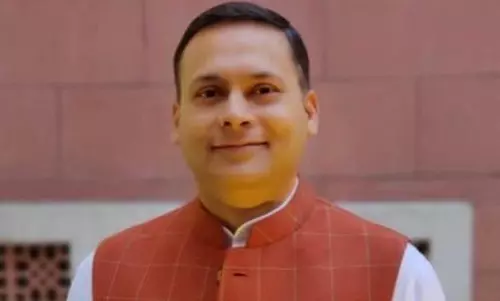
Double standards during financial crisis
text_fieldsGovernment of Kerala has appointed two separate committees to help Kerala tide over the debelitating impact of Covid, to slash expenditure and to enhance revenue. Both the committees comprise the most eminent experts in administration and prominent figures of governmental machinery. One led by CDS Director Prof Sunil Mani and comprising Finance Additional Chief Secretary RK Singh, Expenditure Secretary Sanjay Kaul and Principal Secretary of Urban Development Bishwanath Sinha has given its interim report. The other committee led by former chief secretary KM Abraham consists of Additional Chief Secretary Rajesh Kumar Singh and Planning Board member R Ramkumar. Although the latter's study will be tabled before the government only next week, its major recommendations have come to public knowledge by now.
A preliminary reading of the reports indicate that the answers given by the two different bodies about the financial future of Kerala are almost similar. The key proposal for enhancing revenue made by the committee headed by KM Abraham is to double or increase by 50 percent the fees for all services rendered to the people by the government, especially in the sectors of health and education on which the government spending is quite high. And the major proposals in the Sunil Mani-led committee aimed at reducing expenditure on an urgent basis, are to raise the retirement age of employees by at least two years, abolish non-essential posts, freeze appointments for two years, restrict leave without pay, do away with leave benefits, reorganise the staff pattern in different departments and redeploy excess employees – all put together amounting to a major overhaul of the public administration apparatus. They raise several concerns including the fact that human resources have not been reduced through digitalisation and why there should be so many commissions functioning under the government.
One thing on which all who study the financial status and revenue sources of the government agree, is that for resolving kerala's serious financial crisis, there is no alternative to achieving a comprehensive redesign of the state's administrative establishment. Disagreements and criticisms arise only on the question whether the kernel of the changes is about social welfare or is exclusively driven by economic factors. They also pivot round the question whether the government has the sincerity for implementing it or whether the changes will be used as a cover for favouritism. As a matter of fact both the committees' recommendations contain progressive suggestions as well as ones that essentially are to be given up. However, experience so far has been that double standards borne out of political interests will strike at the root of all reforms and torpedo them. It is at the peak of the Covid crisis that Industries Department issued notification for appointments to six top-level positions in Malabar Cements – an entity running at a loss of crores – that will incur an additional burden of Rs 50 lakh a year. Another set of appointments of 73 staff was made from the labour contract society controlled by CITU (the trade union wing of the ruling party CPM), in April in the same company violating all norms, and sparking big controversy.
Again it is during the time of Covid that notification of appointments was issued for the posts ranging from Assistant Managers to Company Secretary in loss-making public sector spinning mills and Kerala State Textile Corporation headquarters. And the Kerala State Electricity Board (KSEB) is engaged in a back-end game of appointing on contract over 1,000 candidates as helpers and data entry oprators by using Kudumbashree as a cover. Further, Supplyco and State Headload Workers' Welfare Board are busy making their own strategy for making casual employees permanent by using Covid times as a shield. It is the same government that appointed two committees who demand freezing of appointments and increasing fees for government services in order to resolve the financial crisis, that is indulging in serious nepotism and flouting of laws. If the time of Covid is used as an godsend for anointing favourites with prize posts, the government will be losing a rare opportunity to make meaningful reforms in the state. It will also make political morality and credibility among the people take a beating. Naturally, once again the fate of committee reports will be to gather dust in the file racks of the secretariat.























